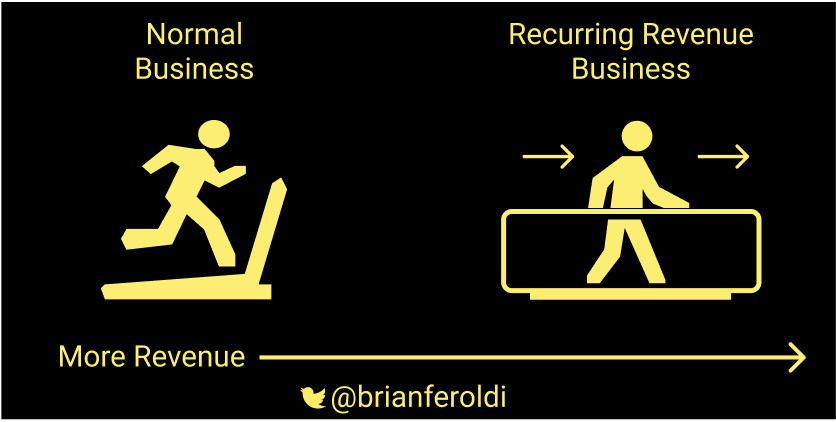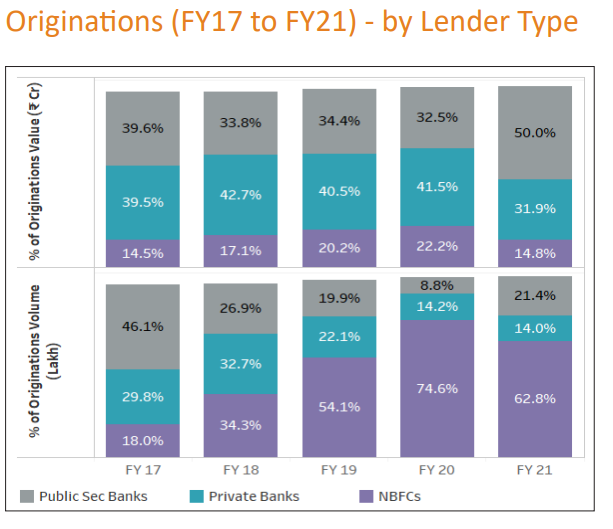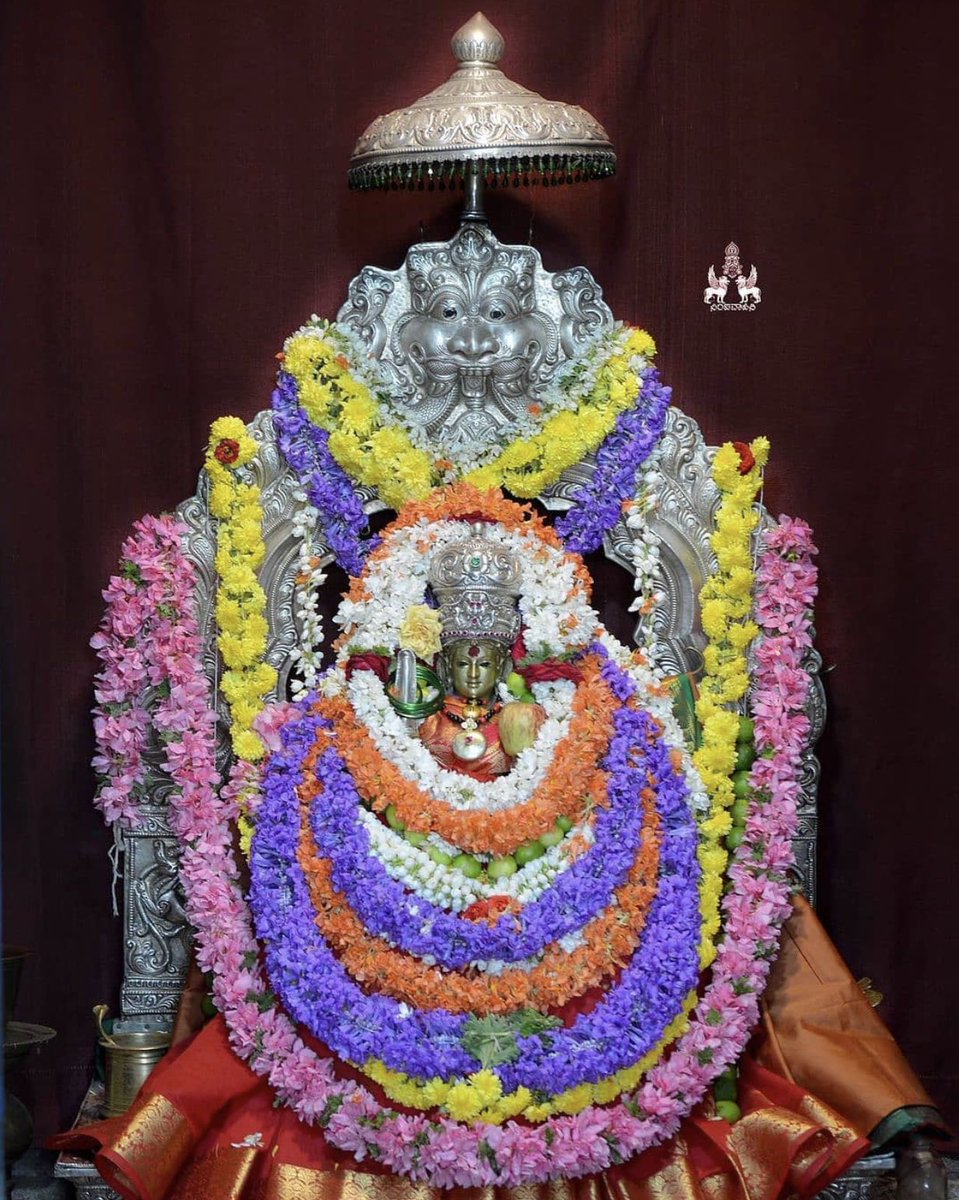From 2000-2015, Congress spent more than $10 million on prayers, the vast majority of which are to the Christian god (more than 96% of prayers in the House were Christian).
I'm getting a lot of questions about the prayer before the #ImpeachmentTrial at the Senate. This #THREAD has your answers.
The prayer is given by Senate Chaplain Barry Black. Yes, the Senate has a chaplain. Yes, your tax dollars pay his salary. And the numbers are shocking:
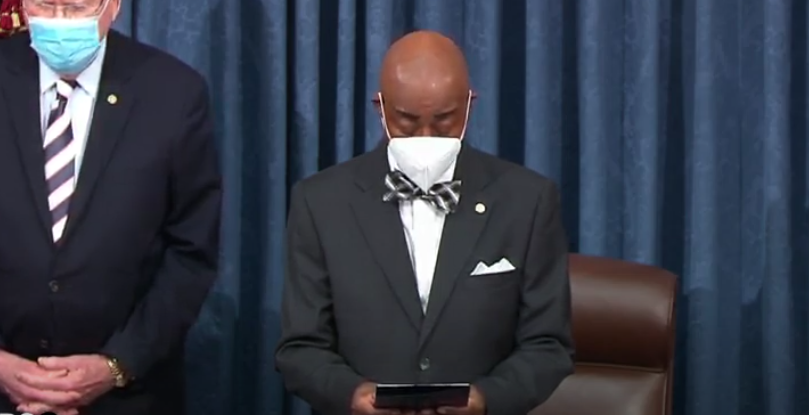
From 2000-2015, Congress spent more than $10 million on prayers, the vast majority of which are to the Christian god (more than 96% of prayers in the House were Christian).
https://t.co/6dEjnnfy0x
Do chaplains do other things? Sure. But they're paid to pray. The claim that they accommodate the religious freedom of Members of Congress may have made sense when DC was an unpopulated swamp...
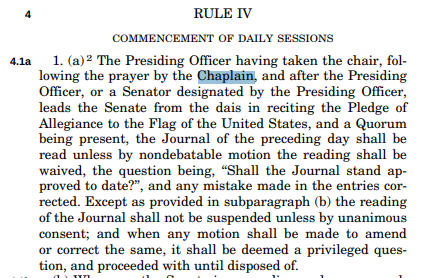
They chaplains are paid to pray.
And they are paid an awful lot.
The Senate Chaplain makes $160,787 (2018)
Again, their only job is to say the opening prayer.
https://t.co/a3YrOqPgOZ
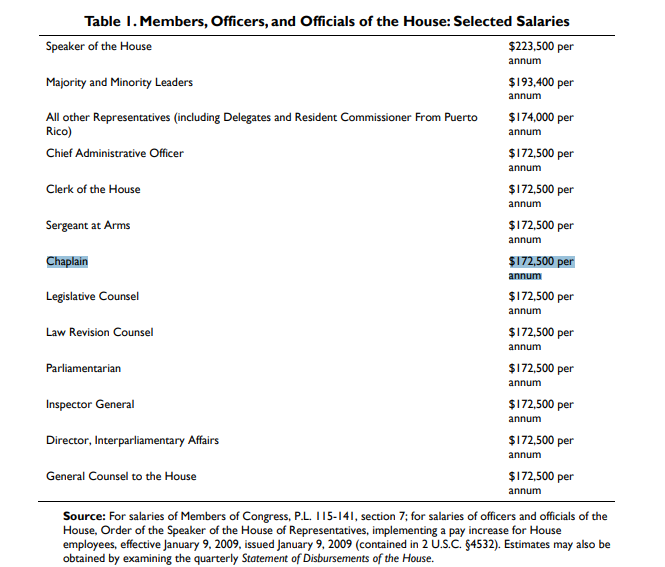
I can't. But we are all paying for it. That's our tax dollars at work.
And one more thing before we get to the legal questions: nobody in Congress really listens to the prayer.
https://t.co/K9unDBXS1l
Sure, the chaplains do other things, but Members of Congress can get those services for free at any house of worship.
So, here's the big question. How is this constitutional? How is this allowed?
Well, it's unconstitutional. But the Supreme Court said it was OK. Why? Because we've been doing it for a long time.
Yes, seriously.

https://t.co/V8Guikoz85
TLDR: Chaplains are an old tradition.
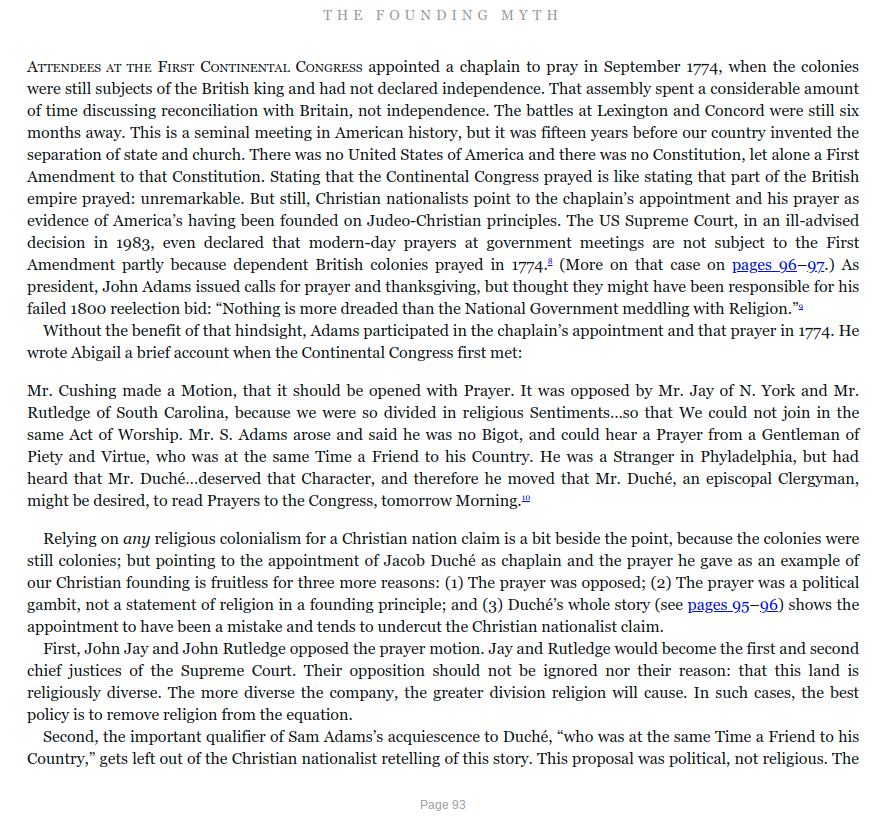
"We've always done it this way" is not a legal argument, it's an admission that you have none. Slavery. Segregation. The subjugation of women. Where would we be if tradition held sway?
In that 1983 case, Justices Brennan and Thurgood Marshall said his stupidly unconstitutional:
This. Is. Easy.
One last thing...
More from Finance
You May Also Like
"I lied about my basic beliefs in order to keep a prestigious job. Now that it will be zero-cost to me, I have a few things to say."
We know that elite institutions like the one Flier was in (partial) charge of rely on irrelevant status markers like private school education, whiteness, legacy, and ability to charm an old white guy at an interview.
Harvard's discriminatory policies are becoming increasingly well known, across the political spectrum (see, e.g., the recent lawsuit on discrimination against East Asian applications.)
It's refreshing to hear a senior administrator admits to personally opposing policies that attempt to remedy these basic flaws. These are flaws that harm his institution's ability to do cutting-edge research and to serve the public.
Harvard is being eclipsed by institutions that have different ideas about how to run a 21st Century institution. Stanford, for one; the UC system; the "public Ivys".
As a dean of a major academic institution, I could not have said this. But I will now. Requiring such statements in applications for appointments and promotions is an affront to academic freedom, and diminishes the true value of diversity, equity of inclusion by trivializing it. https://t.co/NfcI5VLODi
— Jeffrey Flier (@jflier) November 10, 2018
We know that elite institutions like the one Flier was in (partial) charge of rely on irrelevant status markers like private school education, whiteness, legacy, and ability to charm an old white guy at an interview.
Harvard's discriminatory policies are becoming increasingly well known, across the political spectrum (see, e.g., the recent lawsuit on discrimination against East Asian applications.)
It's refreshing to hear a senior administrator admits to personally opposing policies that attempt to remedy these basic flaws. These are flaws that harm his institution's ability to do cutting-edge research and to serve the public.
Harvard is being eclipsed by institutions that have different ideas about how to run a 21st Century institution. Stanford, for one; the UC system; the "public Ivys".



